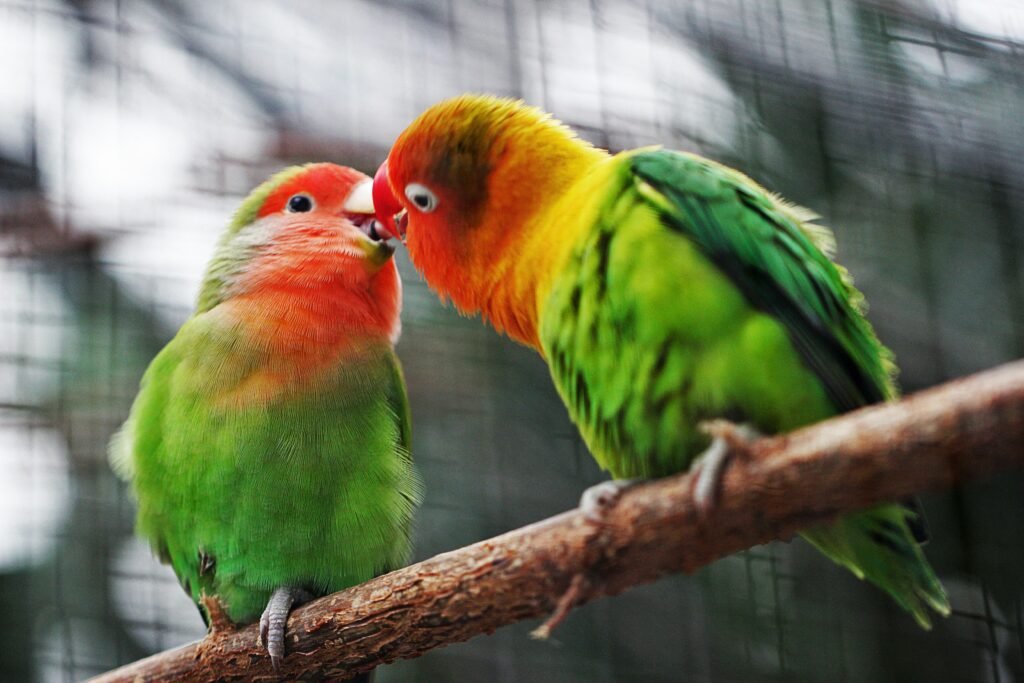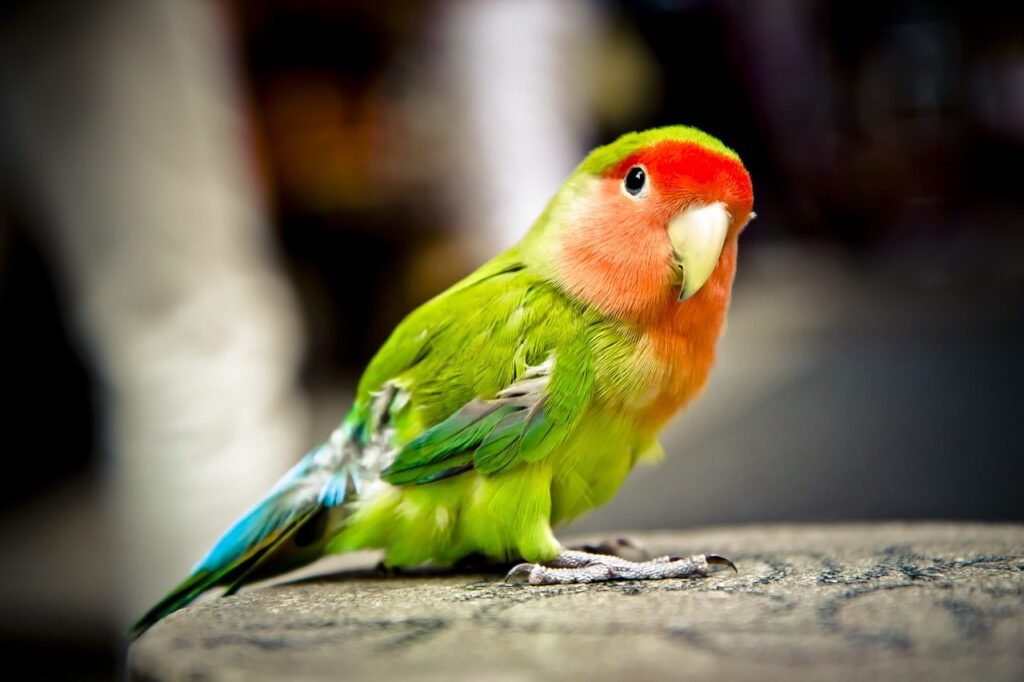
Lovebirds, with their vibrant plumage and affectionate nature, are among the most popular pet birds. But do they make good pets? The answer depends on your lifestyle, experience with birds, and what you are looking for in a pet. This article will explore the various aspects of keeping lovebirds, helping you decide if they are the right pets for you.
Lovebirds are small, colourful parrots native to Africa. They are known for their bright, eye-catching feathers, which come in a variety of colours depending on the species. Common species kept as pets include the Peach-faced Lovebird, Fischer’s Lovebird, and Masked Lovebird.
True to their name, lovebirds are known for their affectionate and social nature. They form strong bonds with their mates and owners, often displaying a playful and curious demeanor. However, their social nature means they require a lot of interaction and attention.
According to avian expert Dr. Irene Pepperberg, “Lovebirds are highly social creatures. They thrive on interaction and can become very attached to their human caregivers if given the proper attention and care.”
Lovebirds are known for their strong bonds with their human companions. They enjoy being handled and can be very affectionate, often seeking out interaction and attention from their owners. This makes them great companions for those who can dedicate time to them.
Julie Murad, founder of The Gabriel Foundation, emphasizes, “Lovebirds can form deep emotional bonds with their owners. They are incredibly affectionate and can provide great companionship if you can spend quality time with them daily.”
Lovebirds are intelligent birds that thrive on mental stimulation. They enjoy toys, puzzles, and activities that challenge their minds. Their playful nature can provide hours of entertainment for both the bird and the owner.
Avian behaviourist Sally Blanchard notes, “Lovebirds are inquisitive and intelligent. Providing them with enrichment and interactive toys is crucial for their mental well-being.”
Due to their small size, lovebirds are easier to accommodate in homes with limited space. They do not require the large cages that larger parrots need, making them suitable for apartments or smaller living spaces.
Lovebirds are highly social and can become lonely or depressed if left alone for long periods. If you work long hours or travel frequently, you may need to consider getting a pair of lovebirds or another type of pet.
Dr. Jamie Whittaker, an avian veterinarian, explains, “Lovebirds can suffer from loneliness if not given adequate social interaction. It’s often recommended to keep them in pairs to prevent behavioural issues.”
Lovebirds can sometimes display territorial or aggressive behaviour, especially if not properly socialized. They can be nippy and may require patience and consistent training to curb undesirable behaviours.
Dr. Barbara Heidenreich, an animal training expert, states, “Proper socialization and training from a young age are essential to prevent aggression in lovebirds. Consistency and positive reinforcement are key.”
While not as loud as some larger parrots, lovebirds can still be quite vocal. They chirp and squawk throughout the day, which might not be suitable for noise-sensitive households or apartments with close neighbours.

Lovebirds require a balanced diet consisting of high-quality pellets, fresh fruits, vegetables, and occasional seeds. A varied diet is essential for their health and well-being.
Dr. Larry Nemetz, an avian nutrition specialist, advises, “A diet rich in variety is crucial for lovebirds. Fresh fruits and vegetables should be part of their daily intake to ensure they receive all necessary nutrients.”
Lovebirds need a spacious cage with room to fly and play. The cage should be equipped with perches, toys, and enrichment items to keep them entertained. They also benefit from regular out-of-cage time to stretch their wings and interact with their owners.
Margaret Wissman, DVM, an avian veterinarian, highlights, “The environment you provide for your lovebird should be stimulating and safe. Regular interaction and time outside the cage are important for their physical and mental health.”
Regular veterinary check-ups are crucial to ensure your lovebird remains healthy. Common health issues include feather plucking, respiratory problems, and nutritional deficiencies. A knowledgeable avian vet can help you maintain your lovebird’s health.
Dr. Karen Becker, a holistic veterinarian, recommends, “Annual check-ups with an avian vet are essential. Early detection of health issues can make a significant difference in the quality of life for your lovebird.”
Building a strong bond with your lovebird takes time and patience. Regular interaction, gentle handling, and positive reinforcement can help establish trust and a strong relationship.
Parrot behavior expert Pamela Clark advises, “Patience and consistency are vital when bonding with a lovebird. Gentle handling and positive experiences will help build trust.”
Lovebirds are intelligent and can be trained to perform tricks, respond to commands, and even mimic sounds. Positive reinforcement techniques, such as treats and praise, work well for training.
Bird trainer Barbara Heidenreich emphasizes, “Using positive reinforcement is the most effective way to train lovebirds. Rewarding desired behaviors with treats and praise helps in shaping a well-behaved pet.”
Lovebirds can make wonderful pets for the right person. Their affectionate, playful nature and stunning appearance make them attractive companions. However, their high social needs, potential for noise, and occasional aggression mean they require dedicated care and attention.
If you are willing to invest time in socializing, training, and providing a stimulating environment, lovebirds can be a rewarding addition to your home. Consider your lifestyle and ability to meet their needs before deciding if lovebirds are the perfect pet for you. With proper care and attention, lovebirds can bring joy, companionship, and vibrant color into your life.
Avian expert Dr. Irene Pepperberg concludes, “Lovebirds can be delightful companions for those who understand and can meet their needs. They are not just pets but also companions that thrive on interaction and affection.”
